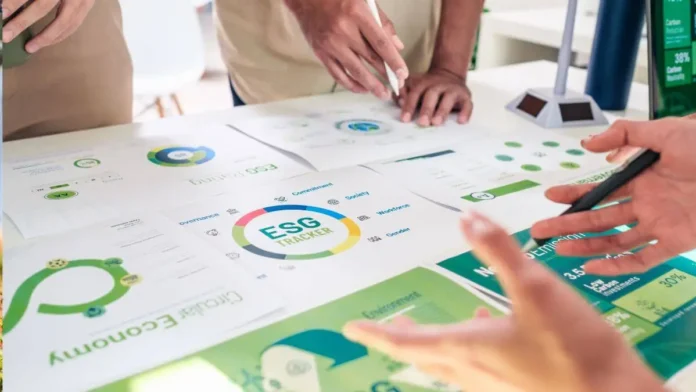IFS ESG Compliance Check Tackles Supply Chain Risks—-Let’s be blunt: if you’re supplying into today’s retail chains and you haven’t got your ESG house in order, you’re already behind. Environmental, social, and governance (ESG) expectations have moved from boardroom buzzwords to hard requirements — written into contracts, baked into audits, and demanded by procurement leads from Berlin to Boston.
Retail buyers aren’t waiting around. They’re actively reshaping supplier lists based on traceability, ethics, and emissions data. The days of vague commitments are over.
Why ESG Has Gone from Optional to Essential
Not long ago, ESG felt like a soft metric — something to note in the annual report or pin to a PowerPoint. That’s no longer the case.
Today, three forces are pushing ESG into the centre of commercial decision-making:
- New legislation, particularly from the EU, is making ESG due diligence legally binding
- Retailers face public pressure to prove ethical sourcing — and they’re pushing that demand upstream
- Investors and insurers are attaching premiums (or penalties) to sustainability risk
In this new landscape, tools like IFS’s ESG Compliance Check don’t just help — they’re fast becoming a lifeline for SMEs trying to stay viable in global supply chains.
A Timely Innovation with Real-World Utility
This week, IFS launched its revamped ESG Compliance Check, targeting one of the market’s most underserved segments: small and medium-sized enterprises. These businesses often lack the resources to navigate the growing web of ESG expectations — but they’re held to the same standards as multinational giants.
According to IFS Managing Director Stephan Tromp, “Managing ESG supply chain risks is particularly tough for SMEs. Our Compliance Check gives them a clear, validated framework to assess and improve their efforts.”
What’s inside?
- 20 ESG requirements covering environmental, social, and governance metrics
- A pre-assessment module with auditor validation
- Actionable improvement plans and risk mitigation strategies
- An optional Carbon Footprint module for emissions tracking
It’s not just more robust than the previous IFS ESG Check — it’s sharper, with clearer attention to supply chain realities like sourcing hotspots and raw material risks.
What Makes the IFS Tool Stand Out
While many ESG tools feel generic, this one is different. The IFS ESG Compliance Check has been shaped for real-world use in complex supply chain environments.
- Integrates with IFS and third-party audits
- Offers credible validation that retailers and partners can trust
- Forward-compatible with upcoming ESG regulations
It’s pragmatic, scalable, and designed to meet suppliers where they are — not where idealists wish they were.
ESG Compliance Check Is No Longer Optional
Supermarket chains and FMCG brands are no longer accepting “we’ll get to it soon.” ESG compliance check tools are now part of procurement playbooks. If you can’t demonstrate ethical sourcing, emissions transparency, and governance processes, you risk:
- Losing shelf space
- Getting sidelined in tenders
- Facing penalties under new laws
For B2B trust, ESG is becoming as important as price or quality.
By embedding tools like the IFS ESG Compliance Check into their operations, suppliers can:
- Secure a long-term competitive edge
- Build deeper retail relationships
- De-risk their supply chain obligations
What Comes Next for IFS?
The ESG Compliance Check is the first release under the new IFS Supply Chain Solutions banner. But it won’t be the last. More ESG and risk management tools are expected, all focused on helping businesses build trust and resilience.
This isn’t just a product line. It’s a signal: compliance is the new currency in global retail. And companies who embrace it will be better positioned for the future.
Final Takeaway
The IFS ESG Compliance Check arrives at a moment when compliance isn’t optional — it’s expected. By offering SMEs a structured, scalable, and credible way to manage ESG risks, IFS has done more than launch a product. It’s delivered a tool that could decide who stays in the global supply game, and who gets left behind.



